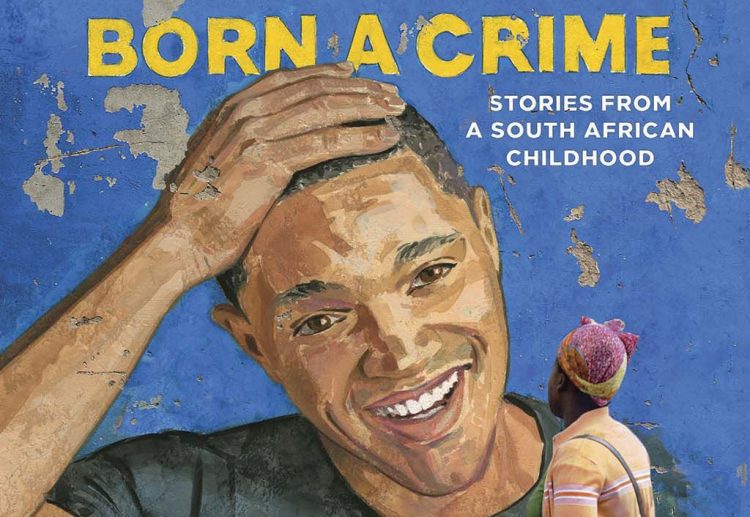Review: Born a Crime by Trevor Noah

Anahita Padmanabhan ’18/ Emertainment Monthly Staff Writer
Without having read what the book is about, and just knowing that this is a book about the life of a comedian, Born a Crime, initially seems like it is going to be either another iteration of author Trevor Noah’s stand-up routine, or about his professional life interspersed with his personal life, like other memoirs written by comedians.
But that is not the case.
The book is about racism, about wanting to belong but being unsure how, and most importantly, it’s about Noah’s mother.
Noah describes what life was like during the apartheid in South Africa, which is a story that is not often told in this part of the world. He also talks about what life was like for him as a man of mixed race, how having fairer skin clashed with his upbringing by his black mother, and how he identified himself. Ultimately, Noah writes about his life, which is a perspective that hasn’t been written by other comedians in America.
Noah’s writing is compelling, he describes the people around him and his eventful life with such honesty, and of course humor. As a comedian, it wouldn’t be right if Noah didn’t include jokes interspersed throughout the book, especially when we least expect it. These moments make the reader feel an appreciation for where Noah has come from in the world. Growing up in the apartheid, growing up not quite belonging to either the white community or the black community, growing up knowing how to run and hide when he was told, is not an easy life. Noah’s book and story garners a new respect for how far he has come, becoming one of South Africa’s top comedians, and now hosting one of America’s favorite shows, The Daily Show.
But as much respect that is given to Noah, even more goes to his mother, Patricia Nombuyiselo Noah. A strong, rebellious, and religious woman, she told Noah’s father that she wanted to have his child, and she didn’t care if he wanted to be in the kid’s life. As Noah points out, his mother chose him, and chose to have a mixed-race child, not knowing when, or if the apartheid would end. Noah says she raised him “like a white child,” showing him that there was more to life and the world than what the government told the black people there was. Noah does not ask for our pity, he does not ask for our sympathy, rather he just states that this was his life.
But in the end, Born a Crime is an homage to Noah’s mother. He dedicates the book to her, saying, “For my mother. My first fan. Thank you for making me a man.” Noah and his mother are a team, as he states. The ran together, they joked together, they stood by each other’s sides. She disciplined him, she protected him, she taught him, and she showed him that he didn’t have to settle. The sincerity of the bond between Noah and his mom makes Born a Crime a truly compelling book, that’s worth the read.